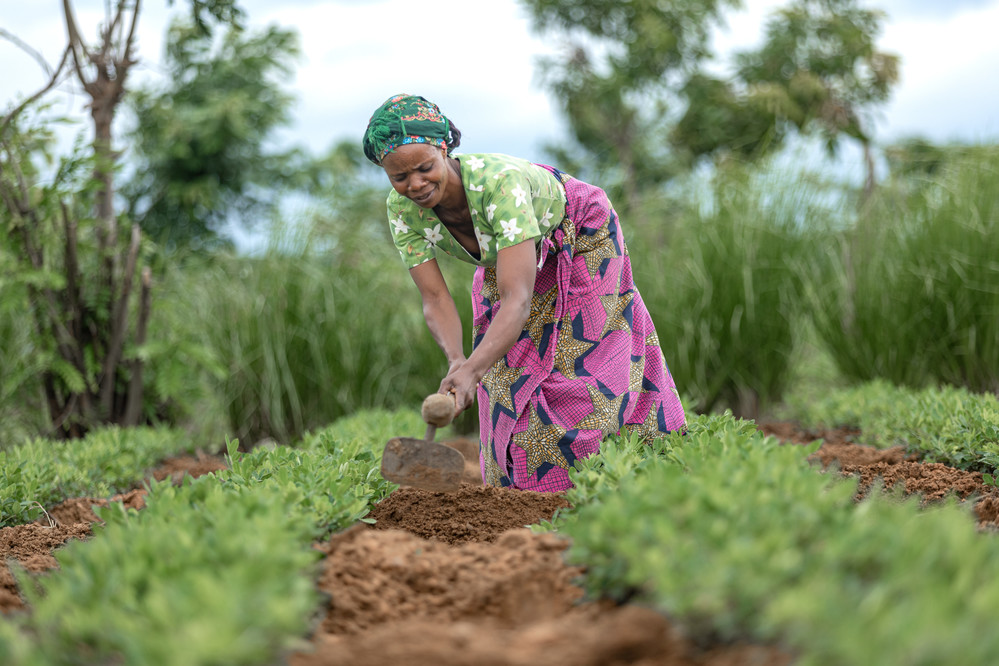In a world where the path to sustainable agriculture often seems as complex as it is critical, SCOPEinsight aims to drive a transformative movement. The agricultural sector, particularly in emerging markets, is besieged by challenges ranging from limited access to finance to the enduring struggle for operational efficiency and environmental sustainability.
At SCOPEinsight, we believe that the cornerstone of sustainable agricultural growth is the professionalization of small and medium-sized enterprises (SMEs) in agriculture, cooperatives, and farmer organizations, jointly refered to as agribusinesses. However, their ability to drive sustainable development is hampered by limited business acumen, insufficient integration into value chains, and, as a result, a lack of access to finance. It is here, amidst these challenges, where SCOPEinsight finds its purpose.
A symphony of data and strategy
SCOPEinsight has developed a systematic, scalable, and collaborative approach to address these issues head-on. Our mission is to bridge the gap between agribusinesses and the financial and market opportunities they need to thrive. We achieve this through a unique blend of assessment tools, which provide business intelligence, used to add transparency and guidance for different stakeholders to make better-informed decisions. By providing detailed insights into the operational strengths and weaknesses of agribusinesses, we pave the way for tailored capacity-building programs, enhanced access to finance, and ultimately, a more professional and investable agriculture sector.
Our approach is data-driven and market-oriented. Through more than 6500 agribusiness assessments across 51 countries and 27 agricultural sectors, we’ve amassed a wealth of data that offers unprecedented insights into the state of agribusinesses globally. This data not only helps agribusinesses understand where they stand but also enables financial institutions, the private sector, NGOs, and other stakeholders to decide where to invest their resources for maximum impact. Specifically, our research has shown that as agribusinesses become more professional, their average loan size increases, indicating a direct correlation between professionalism and access to finance.
In Tanzania, for example, we’ve seen that professional agribusinesses can access significantly larger loans than their less mature counterparts, facilitating greater investment in their operations and growth.
One of the most significant barriers to accessing finance for agribusinesses is the perceived risk by financial institutions. Often, business development services (BDS) provided to improve their performance do not lead to measurable results that financiers can act on. Although financing agriculture remains riskier than other sectors, SCOPEinsight’s assessment tools and business intelligence are designed to identify the risk by providing a clear, standardized indication – a SCOPE Score – of an agribusiness’ state of business in different dimensions, their sustainability, and financial health. When there is a better understanding of the actual risk, mitigation measures can be taken. This standardized approach facilitates the pre-due diligence decision-making by financial institutions, lowers the cost, and decreases the risk of their portfolio.
When SCOPEinsight’s data-driven approach is used to systemically professionalize agribusinesses, an increased number of them will meet market requirements. This data is used to provide finance providers with insights into the risks involved – it not only lowers their costs but also increases the pipeline of agribusinesses eligible for finance.
The Ripple Effect: Introducing the systemic approach at scale
Our work extends beyond individual agribusinesses. In collaboration with our partners Agriterra, IDH, Farmfit Fund, and Oikocredit, we have further developed and enhanced this data-driven approach in a new initiative called AgriGRADE. Each AgriGRADE partner has a clear role and is held accountable for their results, which are measured in a standardized way. Regularly, the data is used to learn and improve the approach.
AgriGRADE is a unique way of collaborating. The combination of tried and tested tools and approaches makes it possible to introduce a systemic way of working. This starts with mapping and segmenting many agribusinesses in a country or region. The AgriGRADE consortium defined the characteristics of four levels of management maturity. Each level of maturity requires support tailored to the needs of that level. This is where the contour of a BDS system emerges.
- Who is qualified to deliver the required services at each level?
- How do we measure if the services provided have led to the desired result?
Standardized tools and business intelligence make the systemic way of working interoperable. It makes it possible to connect this graduation system to the financial sector, which is looking for a less risky investment pipeline.
The AgriGRADE consortium will be testing this approach in Kenya and Tanzania, but we are open to welcoming partners who wish to join this way of working. Scaling up this movement will lead to a more systemic impact. As we look to the future, the potential for impact is vast, but the path forward is clear. With data as our guide and collaboration as our method, the vision of a transformed agricultural sector is not just possible, it is within reach.
Bridging the gap to expedite access to finance for agribusinesses is undeniably a collaborative effort. At SCOPEinsight, we’re committed to serving up the data that makes this seamless integration possible. However, our success hinges not just on data, but on the synergy created when we join forces with the myriad players in the ecosystem. This is where the true value of SAFIN shines through. By combining the wisdom and experiences of SAFIN member institutions and harnessing data to guide our decisions, we’re poised to make significant strides together.
Let’s walk hand in hand towards a future where access to finance is no longer a barrier but a gateway to growth and sustainability for agribusinesses around the globe.
Read more from SCOPEinsight

